Reports of financial corruption involving Iran's interim President Mohammad Mokhber have generated significant backlash on social media.
Many users have cynically remarked that the temporary replacement of Mokhber for Ebrahim Raisi is akin to "the killer left, the thief came."
Previously, Mokhber's inclusion in the seven-member council of the production board sparked widespread protests, even from within the governmental system.
A member of parliament used heavy sarcasm to highlight Mokhber's financial corruption while he was in charge of the Execution of Imam Khomeini's Order.
Critics question how someone like Mokhber, accused of significant corruption, can head a board where the law suppresses the right to criticize and protest against its members' performance.
Mokhber's roles and activities within various foundations and economic institutions, which operate with financial independence and are only accountable to the leader of the Islamic Republic, have placed him in a position susceptible to rent-seeking and embezzlement.
The financial activities of these organizations are so opaque that even estimating them is difficult.
However, some international media, like Reuters, refer to these entities as part of Ali Khamenei's financial empire.
In 2021, Mokhber was appointed as the First Vice President of Iran. A year later, while retaining his position as First Vice President, he also became a member of the Expediency Discernment Council.
Islamic Economics: The Doctrine Advocated by Mohammad Mokhber
Mohammad Mokhber's speech and actions reflect his belief in the Islamic school of economics, a theory supported by Saeed Jalili and Mohammad Taghi Mesbah Yazdi.
The concept of a resistance economy, which Mokhber advocates, emphasizes the participation of the people in implementing plans and financing projects.
This economic model encourages citizens to endure hardships and contribute financially to government initiatives.
A clear example of this is the National Housing Movement plan.
Initially, it promised construction but shifted the burden of investment onto the people. Mokhber declared that the government would not build the houses; instead, the people should provide the capital and money.
In reality, however, most applicants, primarily from low-income groups, could not afford the initial payment and were consequently removed from the list of potential beneficiaries.
Additionally, the participation of banks in providing the approved facilities was minimal or non-existent.
The expectation for people to endure economic hardships under a resistance economy, coupled with allegations of multi-billion dollar corruption involving Mohammad Mokhber and his son Sajjad, reveals a stark contradiction in the behavior of a man dubbed the "Sultan of Rent-Seeking" of the Islamic Republic.
At the Mostazafan Foundation
Mohammad Mokhber's economic and financial ascent began with his involvement in the Mostazafan Foundation.
This organization, overseen by the leader of the Islamic Republic, is recognized as the second-largest economic institution in Iran after the national oil company and one of the largest holdings in the Middle East.
As chairman of the board of directors of Sina Bank and holding significant positions, such as the vice president of transportation and commerce at the Mostazafan Foundation, Mokhber was provided numerous opportunities for violations.
The Mostazafan Foundation, along with the Foundation of Martyrs and the Affairs of Martyrs, the Execution of Imam Khomeini's Order, and Astan Quds Razavi, operates outside the government system and is accountable only to the leader of the Islamic Republic.
This lack of oversight has allowed the Mostazafan Foundation to conduct vast financial operations without independent audits or inspections, expanding its activities to become the second economic pole of the Islamic Republic.
Membership in Irancell's Board of Directors, Bribing to Prevent Turkcell
The accusation of preventing the activity of the Turkcell company by exerting influence and lobbying in the parliament, and cooperating with the MTN company, coincided with Mohammad Mokhber's presence in the Mustazafan Foundation.
The government of Mohammad Khatami was initially supposed to hand over Iran's second telecom project to the Turkish company Turkcell.
However, this contract was eventually declared contrary to national security by the representatives of the 7th Parliament, leading to Turkcell's removal from the project.
Instead, companies affiliated with the Mustazafan Foundation, in cooperation with MTN South Africa, implemented another plan.
Turkcell subsequently sued both Iran and MTN, alleging that bribes were paid and influence exerted to prevent the continuation of Turkcell's involvement.
According to the Financial Times newspaper, the complaint includes allegations of bribery to officials, exertion of influence in the parliament, and promises of military aid to the Islamic Republic of Iran.
This major corruption scandal, involving a contract worth $31.6 billion, resulted in the arrest of the then ambassador of the Islamic Republic in South Africa in Tehran on charges of financial corruption related to the operation license of the MTN telecommunication company.
Despite this, Mohammad Mokhber was rewarded by being appointed to Irancell's board of directors and continued to climb the ranks within the Islamic Republic.
At the Execution of Imam Khomeini's Order
Fourteen years of working at the Execution of Imam Khomeini's Order brought Mohammad Mokhber into a structure that increased his dominance over most of Iran's economic sectors, from energy and telecommunications to health and banking resources.
The Execution of Imam Khomeini's Order, with dozens of subsidiary companies in fields such as oil, gas, petrochemicals, agriculture, industry, mining, medicine, real estate, health, and the production of medicine and hospital equipment, continued to operate under the supervision of its new director, Mohammad Mokhber, from 2007 onwards.
One of Mokhber's activities at the Execution of Imam Khomeini's Order was the confiscation of the property of political prisoners and religious minorities.
These actions led the US Treasury Department to include Mohammad Mokhber's name in the list of sanctioned persons for human rights violations.
Covid-19 and the Vaccines
Mokhber was one of the main opponents of importing the Covid-19 vaccine.
During a time when the virus was causing widespread fatalities, affecting everyone from the poor to the wealthy, and from celebrities to ordinary people, Mokhber promised that the Iranian vaccine would soon save Iranians by launching the Barkat vaccine project.
However, during the peak of the pandemic in August 2021, after thousands of Iranians had lost their lives, Mokhber decided to import vaccines from South America and India, declaring that it was impossible to manufacture the vaccine domestically.
The financial benefit that the failure to produce the Barkat vaccine brought to the Barkat Foundation and the Execution of Imam Khomeini's Order is shocking.
At that time, the purchase price of the Pfizer vaccine was announced at $3 per dose, while the Barkat Foundation set the price of each Barkat vaccine at 200,000 tomans.
In the same currency conditions as Pfizer, and with the calculation of the preferred currency, this figure equates to $48 per dose.
This means that the vaccine produced by the Execution of Imam Khomeini's Order was priced at 15 times the cost of the imported vaccine.
Despite the announcement of readiness by established pharmaceutical companies such as Razi, the development of the vaccine was left to Barkat.
For the unproduced vaccine, the Barkat Foundation received $1 billion from government credits and pre-sold 120 million doses to the government.
These vaccines were never produced, and after thousands of deaths due to the lack of available vaccines, Mokhber addressed the public, saying, "They did not let us make a vaccine."
The Barkat Foundation then transitioned from a manufacturer to an importer of vaccines.
The Father, the Son and Corruption
Sajjad Mokhber, a general practitioner and a member of the board of directors of seven companies active in the field of health, medicine, hospitals, and treatment equipment, holds significant influence in these organizations due to his father's direct involvement in the Execution of Imam Khomeini's Order.
At least five of these companies were registered with his father's influence.
Currently, Sajad Mokhber manages Nasim Salamat Pasargad Holding, where Majid Ghasemi, the chairman of the board of directors of this company, also serves as the CEO of Pasargad Bank.
Sajad Mokhber, representing Pars Arian Investment Company, another debtor to the bank, also holds the position of vice-chairman of the board of directors of Pasargad Pishgaman Amin Capital Company, which consists of 9 entities.
Sajad Mokhber owns various holdings, some of which share subsidiaries and board members with Pasargad Bank.
This has created a complex network with numerous legal shareholders, making it challenging to quantify their number.
The presence of former statesmen, government officials, and members of parliament on the boards of these companies is notable.
For instance, Ali Abdul Alizadeh, a board member of Nasim Salamat Pasargad, served three terms in parliament and held ministerial positions in the governments of Mohammad Khatami and Hassan Rouhani.
The Father and Son Taking Over Oil
One of the charges levelled against Mohammad Mokhber and his son Sajjad is their involvement as oil brokers at the Execution of Imam Khomeini's Order, facilitating illegal oil sales and circumventing sanctions, ultimately leading to the misappropriation of millions of dollars from the nation's oil revenue.
Pasargad Bank's complicity in this matter is evident through its issuance of a $500 million guarantee to ensure the return of oil revenue, which never fully materialized.
Initially, the Execution of Imam Khomeini's Order denied any affiliation with Pasargad Bank and dismissed claims of the bank's involvement in guaranteeing oil sales.
However, it later emerged that Sajjad Mokhbar sits on the board of directors of at least four subsidiary companies of Pasargad Bank.
This case exemplifies the unaccounted-for and significant sums of money flowing into the pockets of individuals who engage in illicit oil sales and evade sanctions, while also collaborating with major financial institutions such as banks.
According to reports from domestic media outlets, this process has become a political norm.
In reference to this, Bahar News highlighted the lack of accountability, stating, "Just as no one questioned the father about the millions of dollars purportedly spent on vaccine production, there seems to be no inquiry into how he secured positions on the board of directors of the municipal pension organization or became chairman or CEO of Pasargad Bank's largest companies."




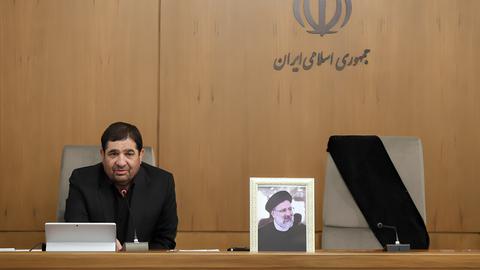
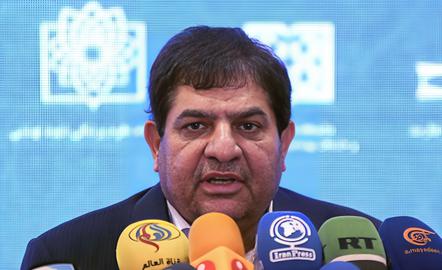
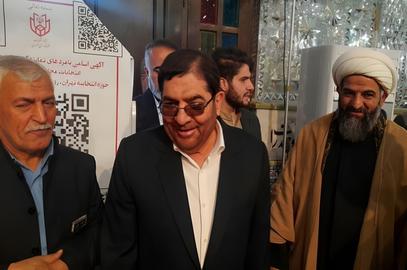
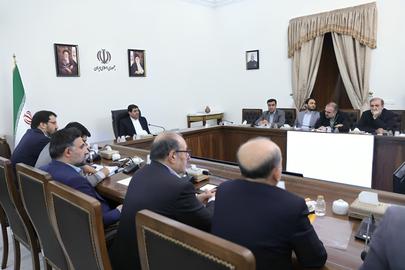
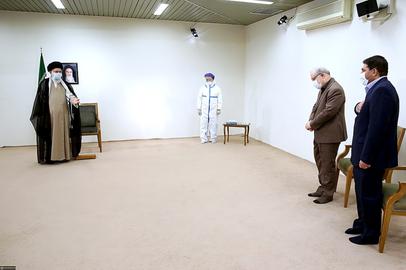
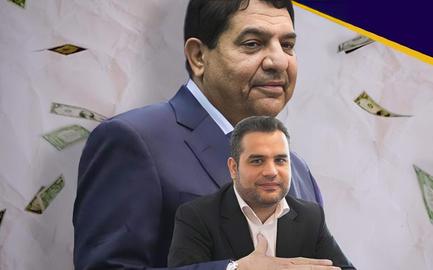









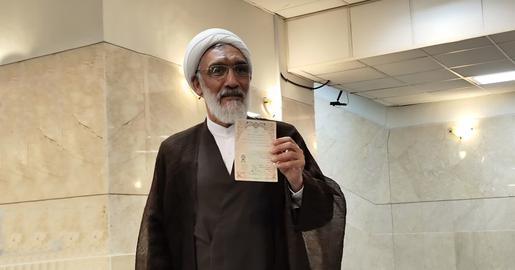
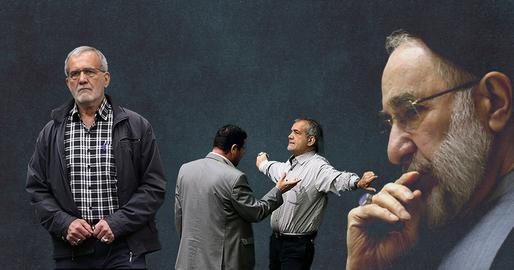








comments